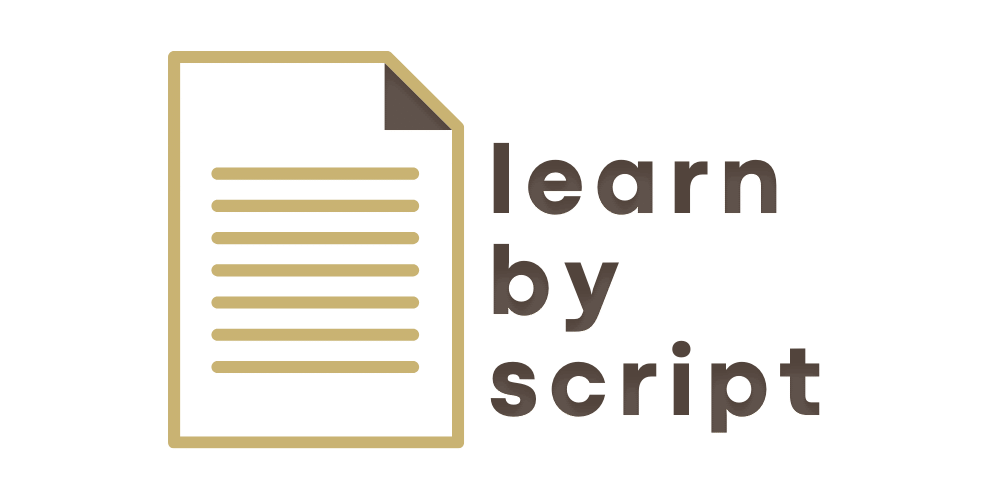Self-improvement is the conscious effort to enhance oneself in various aspects of life, including personal growth, skills development, and overall well-being. It is a lifelong journey that involves continuous learning, self-reflection, and taking action to become the best version of oneself. Self-improvement matters because it allows individuals to unlock their full potential, achieve personal goals, and lead a more fulfilling and meaningful life.
Self-improvement is essential for personal growth and development. It helps individuals identify their strengths and weaknesses, set meaningful goals, and work towards achieving them. By continuously improving oneself, individuals can enhance their self-confidence, self-esteem, and overall sense of self-worth. This, in turn, leads to increased happiness and satisfaction in life.
Self-improvement has numerous benefits in different areas of life. In terms of career and professional development, it can lead to increased job satisfaction, better performance, and more opportunities for advancement. In relationships, self-improvement can help individuals become better partners, friends, and family members by improving communication skills, empathy, and emotional intelligence. In terms of physical health, self-improvement can lead to better fitness levels, increased energy, and improved overall well-being.
Key Takeaways
- Self-improvement is important for personal growth and fulfillment.
- Fitness plays a crucial role in transforming your life and improving overall well-being.
- Adopting a positive and productive mindset can lead to greater success and happiness.
- Building strong and healthy relationships requires effort and communication.
- Overcoming obstacles and challenges is a necessary part of the self-improvement journey.
The Importance of Fitness in Transforming Your Life
Physical fitness plays a crucial role in transforming one’s life. Regular exercise and healthy eating habits have a significant impact on mental and emotional well-being. Engaging in physical activity releases endorphins, which are known as “feel-good” hormones that boost mood and reduce stress levels. Exercise also improves cognitive function by increasing blood flow to the brain.
In addition to the mental benefits, regular exercise and healthy eating habits have numerous physical benefits as well. They help maintain a healthy weight, reduce the risk of chronic diseases such as heart disease and diabetes, improve cardiovascular health, strengthen muscles and bones, and increase overall energy levels. By prioritizing fitness, individuals can improve their quality of life and increase their longevity.
Incorporating fitness into one’s daily routine can be challenging, but it is essential for long-term success. It is important to find activities that are enjoyable and sustainable. This could include activities such as walking, jogging, swimming, cycling, or participating in group fitness classes. It is also important to set realistic goals and create a schedule that allows for regular exercise. Additionally, adopting healthy eating habits, such as consuming a balanced diet rich in fruits, vegetables, lean proteins, and whole grains, is crucial for overall well-being.
Mindset Shifts for a More Positive and Productive Life
The power of positive thinking and self-talk cannot be underestimated when it comes to self-improvement. Our thoughts and beliefs shape our reality, so it is important to cultivate a positive mindset. Positive thinking involves focusing on the good in every situation and believing in one’s ability to overcome challenges. By adopting a positive mindset, individuals can increase their resilience, motivation, and overall happiness.
Overcoming negative thought patterns is essential for personal growth. Negative thoughts can hinder progress and lead to self-doubt and low self-esteem. Strategies for overcoming negative thought patterns include practicing self-awareness, challenging negative beliefs, reframing negative experiences, and replacing negative thoughts with positive affirmations. It is also important to surround oneself with positive influences and seek support from others who share similar goals.
Setting goals is another important aspect of self-improvement. Goals provide direction and motivation, and they help individuals stay focused on what they want to achieve. It is important to set SMART goals – specific, measurable, achievable, relevant, and time-bound – to increase the likelihood of success. Developing a growth mindset is also crucial for personal growth. A growth mindset involves believing that abilities can be developed through dedication and hard work. By embracing challenges, learning from failures, and seeking opportunities for growth, individuals can achieve their full potential.
Building Strong and Healthy Relationships: Tips and Strategies
| Topic | Metric |
|---|---|
| Communication | Number of open and honest conversations per week |
| Trust | Percentage of times promises are kept |
| Respect | Number of times each partner shows appreciation for the other |
| Quality Time | Number of hours spent together per week |
| Conflict Resolution | Percentage of conflicts resolved without yelling or name-calling |
| Intimacy | Number of times each partner initiates physical touch per week |
Building strong and healthy relationships is essential for personal growth and development. Relationships provide support, companionship, and a sense of belonging. They also offer opportunities for personal growth through shared experiences, feedback, and learning from others. Building and maintaining healthy relationships requires effort, communication, and mutual respect.
Tips for building and maintaining healthy relationships include effective communication, active listening, empathy, and setting boundaries. Effective communication involves expressing oneself clearly and honestly while also being open to listening to others. Active listening involves fully engaging in the conversation, paying attention to non-verbal cues, and seeking to understand the other person’s perspective. Empathy involves putting oneself in the other person’s shoes and understanding their feelings and experiences. Setting boundaries is important for maintaining healthy relationships as it helps establish mutual respect and ensures that both parties’ needs are met.
Conflict resolution is another important aspect of building healthy relationships. Conflict is inevitable in any relationship, but it is how conflicts are resolved that determines the health of the relationship. Strategies for effective conflict resolution include active listening, expressing oneself calmly and respectfully, finding common ground, and seeking compromise. It is important to approach conflicts with an open mind and a willingness to find a solution that benefits both parties.
Overcoming Obstacles and Challenges in Your Self Improvement Journey
Obstacles and challenges are inevitable in any self-improvement journey. It is important to recognize that setbacks are a normal part of the process and should be viewed as opportunities for growth rather than failures. Common obstacles in self-improvement include lack of motivation, fear of failure, self-doubt, and external factors such as time constraints or financial limitations.
Strategies for overcoming setbacks and staying motivated include setting realistic goals, breaking them down into smaller achievable steps, celebrating progress along the way, and seeking support from others. It is important to stay focused on the bigger picture and remind oneself of the reasons why self-improvement is important. Developing a routine and creating accountability can also help overcome obstacles. For example, scheduling regular check-ins with a mentor or accountability partner can provide motivation and support.
Self-compassion and resilience are also crucial in overcoming obstacles. Self-compassion involves treating oneself with kindness and understanding when faced with setbacks or failures. It is important to acknowledge that everyone makes mistakes and that setbacks are an opportunity for growth. Resilience involves bouncing back from setbacks and adapting to change. It is important to cultivate a mindset of resilience by focusing on solutions rather than dwelling on problems and by seeking opportunities for learning and growth.
Developing a Growth Mindset: Learning from Failure and Setbacks

Developing a growth mindset is essential for personal growth and self-improvement. A growth mindset involves believing that abilities can be developed through dedication and hard work. It is the belief that failure and setbacks are opportunities for learning and growth rather than indicators of one’s abilities or worth.
Embracing failure and setbacks as opportunities for growth involves reframing negative experiences and learning from mistakes. Instead of viewing failure as a reflection of one’s abilities, it is important to see it as a stepping stone towards success. Failure provides valuable feedback and insights that can be used to improve and grow. By reframing failure as a learning experience, individuals can develop resilience, perseverance, and a willingness to take risks.
Strategies for developing a growth mindset include cultivating a sense of curiosity and openness, seeking feedback from others, embracing challenges, and focusing on the process rather than the outcome. It is important to approach new experiences with a sense of curiosity and a willingness to learn. Seeking feedback from others can provide valuable insights and help identify areas for improvement. Embracing challenges involves stepping out of one’s comfort zone and taking on new experiences that push one’s limits. Focusing on the process rather than the outcome involves valuing effort, progress, and learning over immediate results.
The Power of Mindfulness and Meditation in Enhancing Your Life
Mindfulness and meditation have been practiced for centuries and have numerous benefits for mental and emotional well-being. Mindfulness involves paying attention to the present moment without judgment. It helps individuals become more aware of their thoughts, feelings, and sensations, and it allows them to respond to situations with greater clarity and calmness.
Benefits of mindfulness and meditation include reduced stress levels, improved focus and concentration, increased self-awareness, enhanced emotional regulation, and improved overall well-being. Mindfulness has been shown to reduce symptoms of anxiety and depression, improve sleep quality, and increase resilience to stress.
Incorporating mindfulness and meditation into one’s daily routine can be done in various ways. This could include practicing formal meditation techniques such as sitting or walking meditation, or it could involve incorporating mindfulness into everyday activities such as eating, showering, or walking. It is important to start small and gradually increase the duration and frequency of practice. Consistency is key when it comes to mindfulness and meditation, so finding a routine that works for you is important.
Strategies for staying present and cultivating a sense of calm and clarity include deep breathing exercises, body scans, guided imagery, and mindful movement practices such as yoga or tai chi. Deep breathing exercises involve taking slow, deep breaths in through the nose and out through the mouth. Body scans involve bringing attention to different parts of the body and noticing any sensations or tension. Guided imagery involves visualizing a peaceful or calming scene. Mindful movement practices involve focusing on the sensations of movement in the body while engaging in activities such as yoga or tai chi.
Creating Healthy Habits for Long-Term Success
Creating healthy habits is essential for sustainable self-improvement. Habits are automatic behaviors that are performed without conscious thought, so creating healthy habits allows individuals to make positive changes in their lives without relying on willpower alone. Healthy habits provide structure and consistency, making it easier to achieve long-term success.
Tips for developing and maintaining healthy habits include setting specific goals, creating a routine, starting small, tracking progress, and rewarding oneself. Setting specific goals involves identifying the desired outcome and breaking it down into smaller, manageable steps. Creating a routine involves scheduling regular times for engaging in the desired behavior. Starting small involves focusing on one habit at a time and gradually increasing the difficulty or duration. Tracking progress involves keeping a record of the behavior and reflecting on successes and areas for improvement. Rewarding oneself involves celebrating milestones and achievements along the way.
Overcoming resistance and staying committed to goals can be challenging. It is important to identify potential barriers or obstacles and develop strategies for overcoming them. This could include finding an accountability partner, seeking support from others, or creating a supportive environment that encourages healthy habits. It is also important to be flexible and willing to adapt as needed. If a particular habit is not working or is no longer aligned with one’s goals, it is important to reassess and make necessary adjustments.
Navigating Change and Transition: Coping Strategies and Techniques
Change and transition are inevitable in life, but they can be challenging to navigate. Whether it is a career change, a move to a new city, or a major life event, change can bring uncertainty, stress, and fear of the unknown. It is important to develop coping strategies and techniques to navigate change effectively.
Strategies for coping with uncertainty and managing stress include practicing self-care, seeking support from others, reframing negative thoughts, and focusing on what can be controlled. Self-care involves engaging in activities that promote physical, mental, and emotional well-being such as exercise, relaxation techniques, and hobbies. Seeking support from others can provide a sense of connection and reassurance during times of change. Reframing negative thoughts involves challenging negative beliefs and finding alternative perspectives. Focusing on what can be controlled involves identifying areas of control and taking action in those areas while accepting what cannot be controlled.
Staying resilient and adapting to change involves cultivating a growth mindset and embracing the opportunities that change brings. It is important to view change as an opportunity for growth and learning rather than something to be feared or avoided. By staying open-minded, flexible, and willing to learn from new experiences, individuals can navigate change more effectively.
Celebrating Your Progress and Achievements: Reflection and Gratitude
Celebrating progress and achievements is an important part of the self-improvement journey. It provides motivation, boosts self-confidence, and reinforces positive behaviors. Reflection allows individuals to acknowledge their growth, identify areas for improvement, and set new goals. Gratitude involves expressing appreciation for the progress made and the support received along the way.
Strategies for reflecting on one’s journey include journaling, meditation, or engaging in conversations with trusted friends or mentors. Reflecting on one’s journey involves asking questions such as: What have I learned? What challenges have I overcome? What are my strengths? What areas still need improvement? By reflecting on one’s journey, individuals can gain valuable insights and make informed decisions about their next steps.
Expressing gratitude involves acknowledging the progress made and expressing appreciation for the support received along the way. This could involve writing thank-you notes to those who have helped or supported you, expressing gratitude in daily affirmations or prayers, or simply taking a moment each day to reflect on what you are grateful for. By expressing gratitude, individuals can cultivate a positive mindset and increase their overall sense of well-being.
In conclusion, self-improvement is a lifelong journey that involves continuous learning, self-reflection, and taking action to become the best version of oneself. It is important for personal growth and development as it allows individuals to unlock their full potential, achieve personal goals, and lead a more fulfilling and meaningful life. Fitness plays a crucial role in transforming one’s life by improving mental and emotional well-being and overall physical health. Mindset shifts, building strong relationships, overcoming obstacles, developing a growth mindset, practicing mindfulness and meditation, creating healthy habits, navigating change, and celebrating progress are all important aspects of the self-improvement journey. By incorporating these strategies into one’s life, individuals can enhance their overall well-being and achieve long-term success.
If you’re looking for ways to enhance your personal growth and find your true purpose in life, you might find this article on LearnByScript.com helpful. It delves into the concept of Ikigai, a Japanese philosophy that explores the intersection of passion, mission, vocation, and profession. By understanding and applying the principles of Ikigai, you can discover your reason for living and unlock a sense of fulfillment and happiness. Check out the article “Find Your Reason for Living: Ikigai Breakdown” to learn more about this powerful self-improvement technique.
FAQs
What are self improvement niches?
Self improvement niches refer to specific areas of personal development that individuals can focus on to improve their lives. These niches can include areas such as health and wellness, productivity, relationships, spirituality, and more.
Why are self improvement niches important?
Self improvement niches are important because they allow individuals to focus on specific areas of their lives that they want to improve. By setting goals and working towards self-improvement, individuals can increase their overall happiness and well-being.
What are some popular self improvement niches?
Some popular self improvement niches include fitness and nutrition, time management and productivity, mindfulness and meditation, personal finance, and career development.
How can I find the right self improvement niche for me?
To find the right self improvement niche for you, consider your personal goals and areas of interest. Think about what areas of your life you want to improve and what steps you can take to achieve those goals. You can also explore different self improvement resources and communities to find inspiration and guidance.
What are some effective self improvement strategies?
Effective self improvement strategies can vary depending on the individual and their specific goals. However, some common strategies include setting clear goals, creating a plan of action, tracking progress, seeking support and guidance from others, and practicing self-care and self-compassion.







